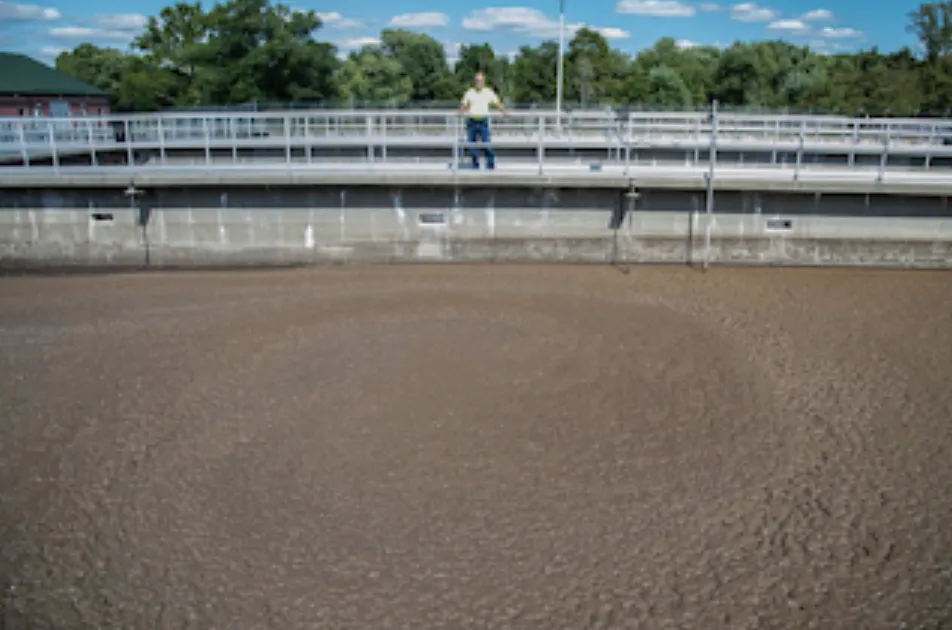October 30, 2024
Is sewage sludge used on farms and golf courses in your community? Tips for journalists to investigate issues.
By Joseph A. Davis of the Society of Environmental Journalists

A sewage sludge treatment tank in Scottdale, Penn. (USDA photo, Lance Cheung via Flickr CC)
It may not sound pretty, but looking into sewage sludge disposal practices can be a story that helps your community's health. "There was a time when the Environmental Protection Agency renamed toxic sludge as 'biosolids,' and journalists went along with it," reports Joseph A. Davis of the Society of Environmental Journalists. "As we are becoming aware of more and more toxic chemicals, it is hardly a surprise that we are finding them in sewage sludge. The surprise is that some farmers are spreading them on their fields."
The multiple contaminants within sewage sludge are a health threat to humans and the environment because PFAS or "forever chemicals" can be present in sludge; however, sludge pollutants can also include "heavy metals like lead, other toxic organics like dioxins, PCBs, pharmaceuticals whose names you can’t even pronounce," Davis explains. "The problem gets much harder when you realize there are thousands of individual PFAS chemicals. Not to mention all the other chemical families."
The problems with sludge, even when treated, or labeled "biosolids" remain extensive. EPA rules may not be enough to keep people and nature safe because current rules "allow — some say encourage — sterilized, dried sludge to be spread on fields, golf courses, etc," Davis writes. "The big question is whether harmful chemicals are getting into people’s food and water."
Davis offers the following story ideas:
- Where does your sewage go when you flush the toilet? Talk to your local sewage treatment agencies and ask them what they do with their sewage sludge.
- Ask who takes the bulk of processed sludge from your local agencies? There may be companies who distribute it in large quantities to farmers, golf courses, etc., who apply it to land. Talk to them. Talk to their customers.
- The EPA has to review its 'biosolids' rules every two years to see whether they should be updated as new contaminants come to light. What do local sewage officials and environmental advocates think about the EPA’s performance?
- Some disposal of sewage sludge on land requires a National Pollutant Discharge Elimination System (water pollution) permit. Check the permit database for permittees. Check the EPA’s ECHO enforcement database for violators. Talk to permittees and permitting agencies.
- Does your local sludge go into the retail market? What companies and brands sell it? Ask for their test results on chemical contamination. Figure out what they didn’t test for.
- Talk to groundskeepers or managers at local golf courses. Do they use sludge products on their courses? What can you learn about the run-off situation?
- Go to meetings of local garden clubs and community gardens. Or visit on-site. Ask members what they do, especially with vegetable gardens.
Reporting resources:
- U.S. Environmental Protection Agency: The agency sets the standards for land application of sludge.
- Local sewage treatment agencies: You can find them in the EPA’s ICIS-NPDES database using SIC code 4952.
- National Association of Clean Water Agencies: The NACWA is a lobby and professional group of municipal sewage treatment agencies.
- Center for Food Safety: A nonprofit group that advocates for food safety.
- Regional biosolids groups: Find some listed here.
- Food & Water Watch: A nonprofit environmental advocacy group that follows the sludge-agriculture issue.
- Water Environment Federation: A professional and scientific organization whose members work in the sewage and water industries.